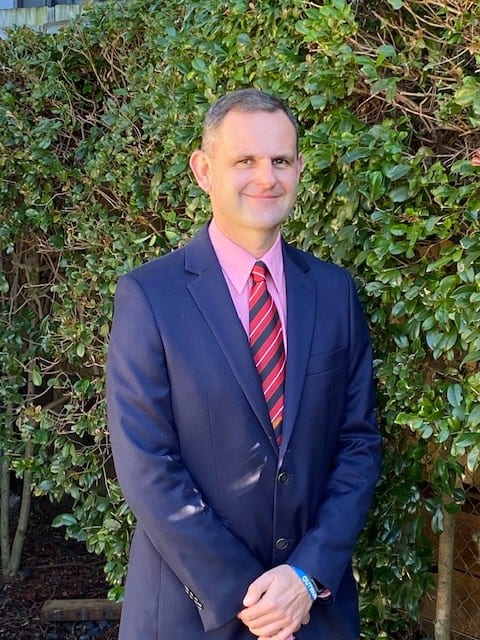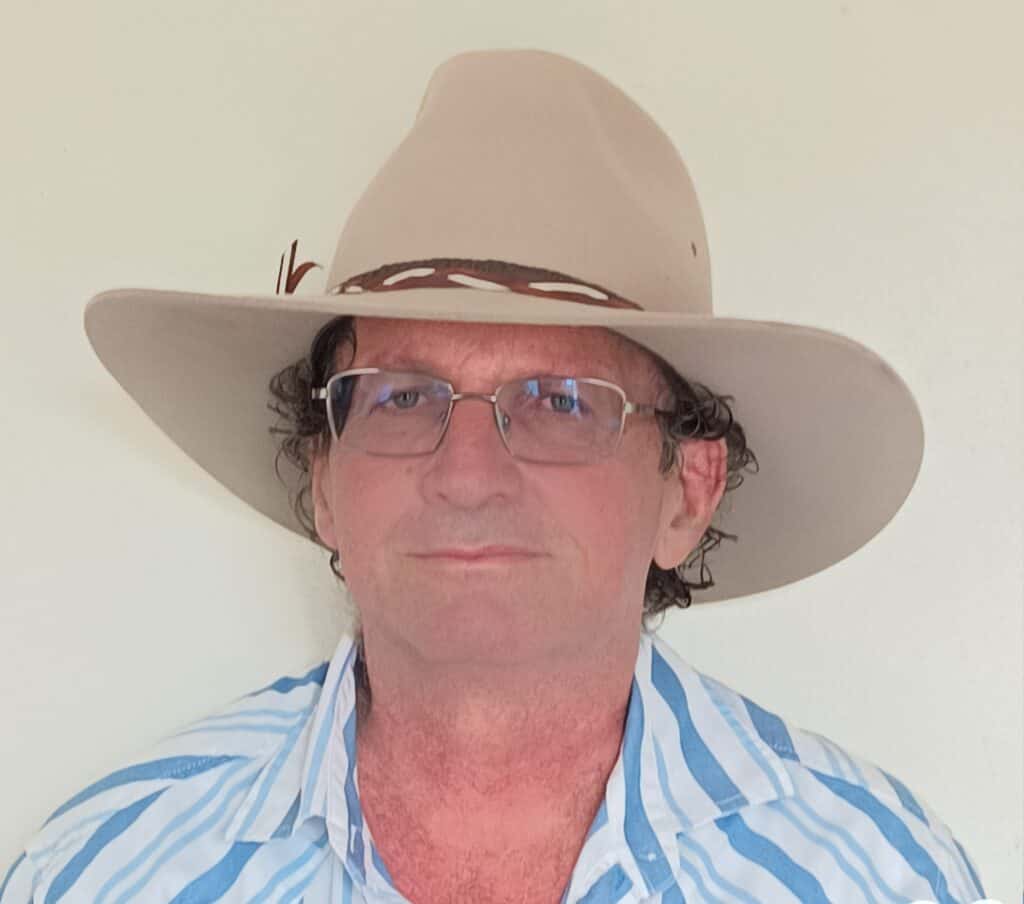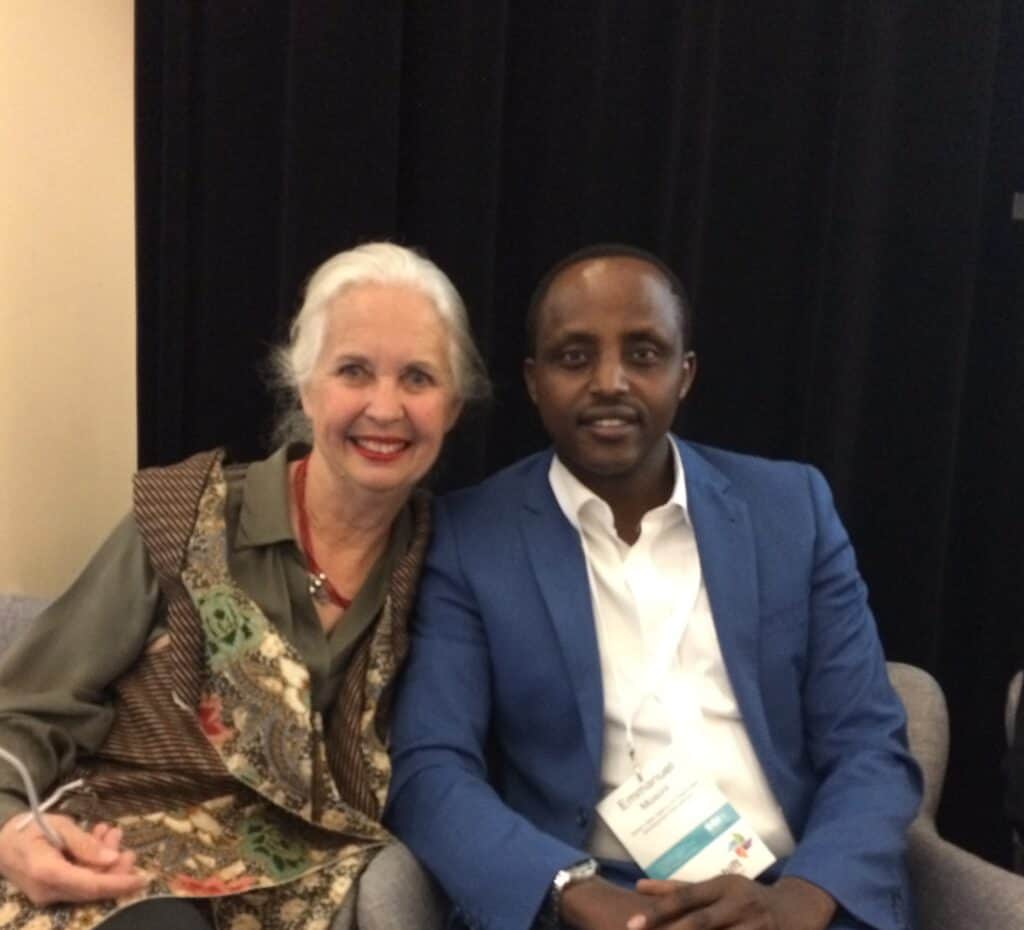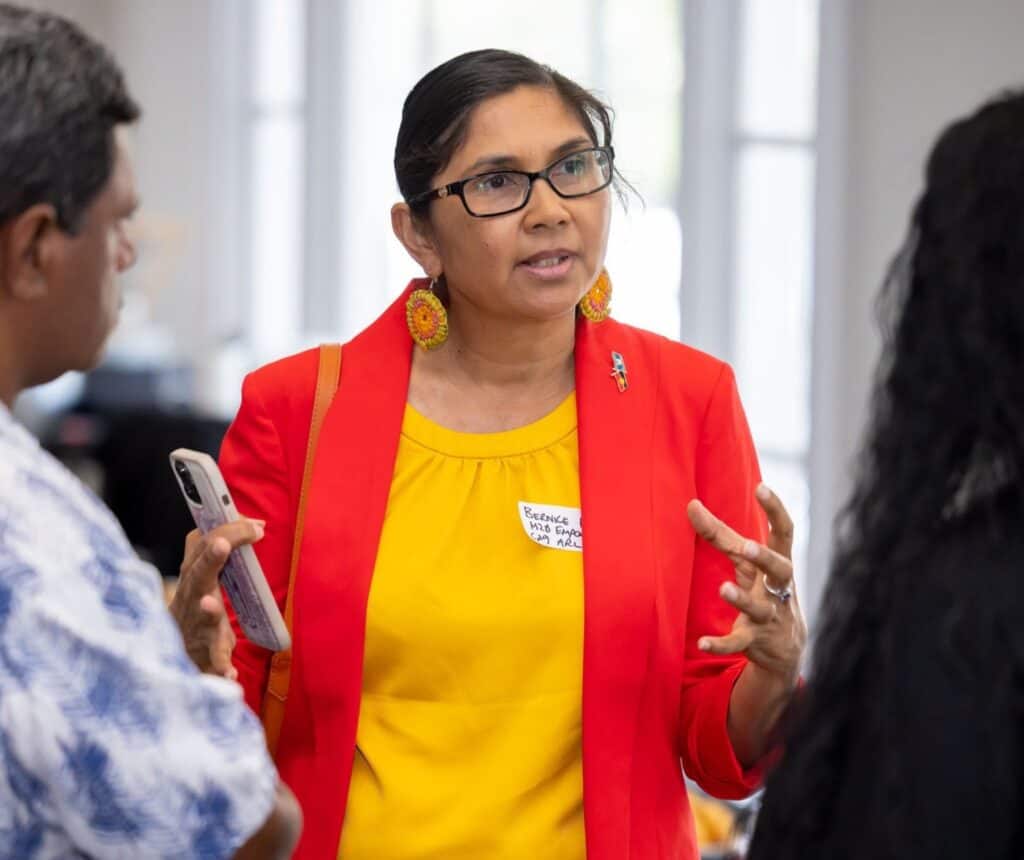Jamie Brogan donned the iconic pink shirt for his first job with Elders at the company’s Dubbo branch in 1996. The farmer’s son from Tamworth was stepping into over 150 years of agricultural history, which he’s playing his own part in shaping almost 30 years later.
His employer sponsored him to take part in the Australian Rural Leadership Foundation’s 2020 Australian Agribusiness Leadership Program (AALP), which took the form of two impactful sessions, drawn-out by COVID-19 disruptions. The timing, ultimately, was perfect as Jamie took on a challenging new job as Elders’ State General Manager QLD/NT while immersed in the reflective process of the AALP.
“The first session of the program was extraordinarily well-facilitated. It took us off-grid, with the space to reflect on ourselves, talk about what’s holding us back, why we feel a certain way … it made me confront what I was holding on to, and realise that we all carry baggage and we have a choice in how we respond to this.”
For Jamie, the baggage he carried was balancing the wealth of experience he’d gained over his career alongside the weight of managing problems, pressures and work culture challenges.
“I guess if you’re in an environment for so long, you can become a product of that environment … I stayed with Elders because I felt I could make a difference to the people working the in the branch network. They are the ones in front of our clients providing solutions, and they are the ones generating revenue for the business,” Jamie explains.
“I could cop-out and leave or I could be part of the solution – do something about it and make an impact for the right reasons. It was a turning point for me.”
While Elders is the vehicle that enabled Jamie to realise his dream of becoming an agronomist, and has afforded him the chance to live and work in rural communities across Australia, some of his roles exposed him to a ‘management’ style of leadership which didn’t achieve the best results and team dynamics. It’s something he consciously carried into his new role.
“Not only was the QLD/NT environment a pretty tough market, but I was taking on a section of the business which was acknowledged as behind in performance,” he says.
“I’ve been in the role a little over two years now, and I started with a team and network that were willing and able to run through a brick wall and give their all, but didn’t know how to direct this energy. There were 300 people feeling as though they couldn’t do it, and it was my responsibility to build and develop this team. I brought people in from outside with different views to broaden our experience, and the big thing I needed to address was transparency,” he says.
“The AALP emphasises the power in being authentic and upfront. When I took the role in Queensland we conducted staff surveys and the results were terrible, so we shared this, warts and all. We also had an environment where people would indirectly voice their grievances without taking it to the right space. We now encourage clear and regular feedback, and are normalising this way of doing things.”
As Jamie and his cohort concluded the second AALP session in Orange in May last year, the focus was on humility and leading by example.
“Some of the exercises further crystalised the sense that I had the right idea about leadership, and what does and doesn’t lead to good outcomes,” Jamie says.
“In agribusiness, you can always fill your day and work 80 hours a week, but you need time to pause and reflect on how you conduct yourself. The aim at all of our branches is to provide a consistent environment with good communication.”
For Jamie, the diversity of industries and backgrounds represented in his AALP cohort was a key part of the program’s value.
“There were some impressive young people at the start of their journeys with real experience about what it’s like to start your career in ag. They all begin with such enthusiasm, but if our industries don’t see the world through their lens we won’t be able to attract or retain them.” He says.
“Elders has an incredible history and legacy,” Jamie reflects, “and they have always been conscious of the results when you back your people. Their investment is critical, and I’m challenging myself that we need to do more of it in our state. Elders have invested in me, and I’m grateful for that, and determined to give back more than I’ve been given.
“We invest in branch managers and give them the courage to challenge and change their environments and it becomes a rolling stone – the rewards are self-fulfilling.”
Looking to the future of his industry, Jamie sees bright fundamentals, as long as there is the leadership to match.
“Agriculture is in a good place, and of course we’re always on the lookout for what the next shock might be and the guidance our clients need. We don’t take that responsibility lightly,” he says.
“COVID has changed how and where people want to work. Leading through the pandemic was damn hard, and we need to find the people who really want to be leaders and not just managers. We’ve got to nurture these people who don’t just want a title, but genuinely want to lead to have an impact.”









